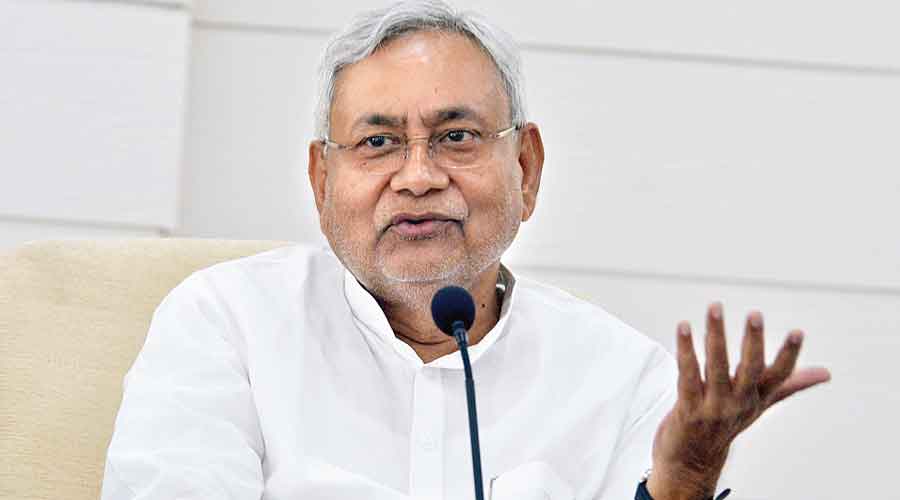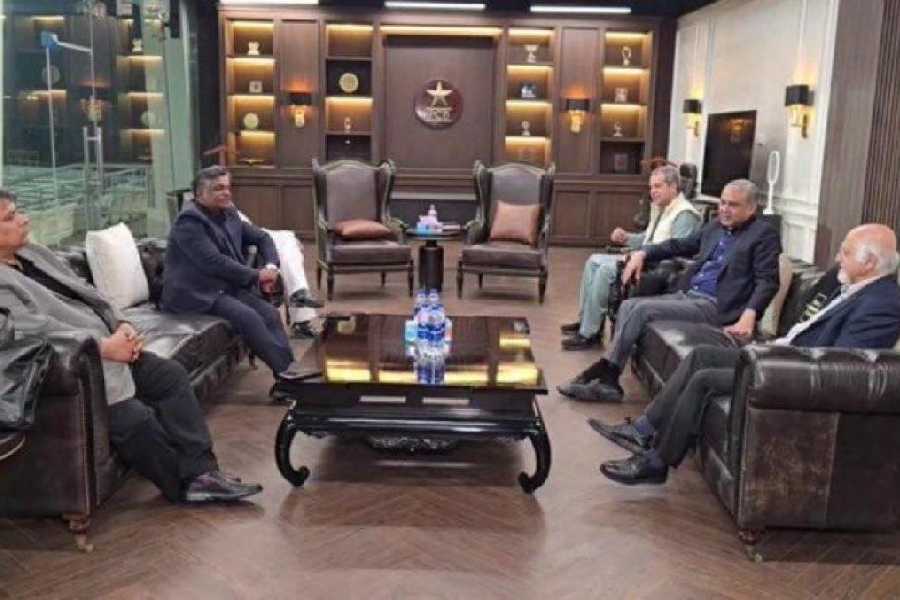Bihar chief minister Nitish Kumar on Monday led an all-party delegation to call on Prime Minister Narendra Modi to press for a caste-based census in the country, an issue the ruling BJP appears wary of addressing.
The issue brought Nitish and his principal rival, leader of Opposition in the Assembly Tejashwi Yadav, on the same page, as the two, part of a 10-party delegation from Bihar, met the Prime Minister.
Modi was learnt to have heard the delegation leaders “patiently”, neither accepting nor rejecting the demand.
“People in Bihar and the entire country are of the same opinion on this (caste census) issue. We are grateful to the Prime Minister for listening to us,” Nitish told reporters after the meeting.
“Now, the Prime Minister has to take a decision on it,” he added, seeking to lob the ball in ally BJP’s court.
Nitish has found himself politically squeezed by ally BJP and appears to be using the issue to regain prominence.
The BJP, represented by Bihar minister Janak Ram, was also part of the 11-member delegation but the central
BJP remains in a quandary over backing the demand officially.
The central government, in a written reply to a Lok Sabha question in July, had said it “has decided as a matter of policy not to enumerate caste-wise populations other than SCs and STs in the census”.
Since then, however, BJP allies like Nitish (JDU), Anupriya Patel (Apna Dal) and Ramdas Athawale (Republican Party of India) and Opposition parties such as the Samajwadi Party, RJD and many more across the country, including southern parties, have raised a strong demand for caste-based census, putting the central government in a fix.
Internally, the BJP too stands divided over the issue, with a large number of backward caste or OBC leaders, favouring the need for such a census while the upper castes, who drive the party’s political and ideological line, opposed to it. The BJP faces a similar division over the women’s reservation issue.
“The BJP has never been against a caste census. The BJP backed the resolutions passed in both Houses of the Bihar legislature,” said Sushil Kumar Modi, former Bihar deputy chief minister and now a Rajya Sabha MP of the party. Sushil Kumar, himself an OBC leader, shied away from firmly backing the demand.
Party insiders said that in principle the BJP was not in favour of a census on caste lines but would refrain from opposing it officially, given the political sensitivity of the issue. The BJP is also afraid of opposing the demand because of the upcoming Uttar Pradesh polls.
The government, the BJP and also the RSS are wary that a caste census could reignite a post-Mandal like situation of the nineties and spoil their ideological and political project
of forming a monolithic Hindutva identity. Officially, the RSS in the past has said that a caste census could defeat the goal of forming a “casteless society”.
The demand for a caste census is primarily being pitched by leaders of parties who derive their political and electoral strength from the backward castes such as Nitish, Tejashwi, Akhilesh Yadav and others.
Officially, the backers argue that a caste census would bring out the exact numbers and socio-economic conditions of different sections and help the government in better targeting of welfare schemes.
The BJP under Modi has incrementally enlarged support among OBCs in elections, eating into the vote bases of smaller parties, who feel threatened.
Politically, these parties feel that a caste census would bring out the exact numbers of OBCs and other deprived sections of the society and lead to a churning.
The Mandal Commission (based on whose report the 27 per cent reservation for OBCs was implemented) had estimated the OBC population to be 52 per cent, based on the 1931 caste census. These parties feel that after the caste census puts an official seal on the number then they can demand increase in reservation quota.
“Why only 27 per cent reservation for a population of over 50 per cent while 10 per cent for upper castes who form just around 20 per cent of the population?” one Samajwadi Party MP said, referring to the Modi government’s decision of giving 10 per cent reservation to the economically weaker sections among the upper castes.
“The caste census would bare the disproportionate privileges being enjoyed by Hindu upper castes in all sectors,” one Dalit BJP MP said.
The Modi government is wary these questions would get fillip after a caste census and could upset its Hindutva politics. The OBC driven political parties have also been demanding the government scrap the 50 per cent cap on reservation put by the Supreme Court, another uncomfortable issue for the ruling BJP.
The caste census demand had rocked the previous UPA government too. Under pressure, the UPA had conducted a separate Socio Economic Caste census in 2011 but the results were never published. The Modi government said the data collected then was full of faults. The last caste census was conducted by the British in 1931 and all estimates are made based on it.










